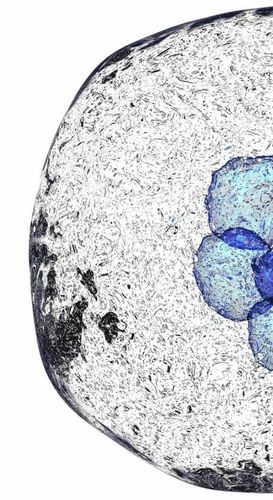
Cancer test kit HERIGUARD™ MMRoncologyfor genetic testingblood
Add to favorites
Compare this product
fo_shop_gate_exact_title
Characteristics
- Applications
- for cancers
- Application field
- oncology, for genetic testing
- Sample type
- blood, for buccal swab
Description
Hereditary cancers account for ~5% of all malignancies and occur because of an inherited deleterious gene alteration from one of the parents. People carrying such alterations have a high risk of developing cancer at an early age, as well as developing multiple synchronous or metachronous cancers. Genetic screening of high-risk populations, such as individuals with a family history of cancer, is important in identifying cancer-related germline genetic variants and the chance of developing cancer in your lifetime, prompting early discovery of cancer lesions and improving patient survival.
Identifies inherited predisposition to gastrointestinal (GI) cancer
Heriguard™ MMR reports germline genetic alterations in 24 genes, including mismatch repair (MMR) genes – a class of genes responsible for correcting mismatch errors that arise during DNA replication. The panel evaluates the hereditary risk of GI cancer while providing genetic evidence for diagnosing a series of hereditary cancer syndromes including hereditary non-polyposis colon cancer (HNPCC, also known as Lynch syndrome), MUTYH-associated polyposis, hereditary pancreatic cancer and hereditary gastric cancer among others.
WHO IS IT FOR
Individuals with 10+ adenomatous polyps or 2+ hamartomatous polyps
Individuals with one or more family members that have familial adenomatous polyposis (FAP)
Individuals with one or more family members that have colorectal or endometrial cancer before the age of 50
Individuals with two or more family members that has GI cancers at any age
Individuals with family members diagnosed with tumor susceptibility syndrome or related tumors
Catalogs
No catalogs are available for this product.
See all of Geneseeq‘s catalogsRelated Searches
- Assay kit
- Blood assay kit
- Plasma assay kit
- Molecular test kit
- Oncology test kit
- Tissue detection kit
- Genetic test kit
- Oncology test kit
- Genetic mutation detection kit
- FFPE tissues assay kit
- Cerebral test kit
- BRAF gene test kit
- Colorectal cancer test kit
- Lung cancer detection kit
- Genomic test kit
- Genomic DNA detection kit
- BRAF mutation detection kit
- NGS sequencing assay kit
- KRAS mutation detection kit
- Bone marrow assay kit
*Prices are pre-tax. They exclude delivery charges and customs duties and do not include additional charges for installation or activation options. Prices are indicative only and may vary by country, with changes to the cost of raw materials and exchange rates.



